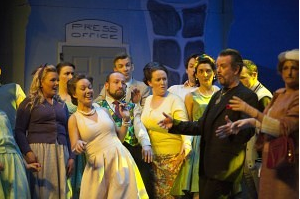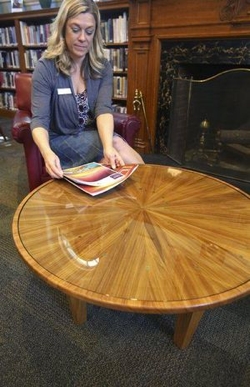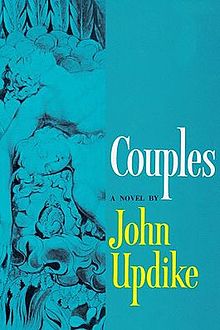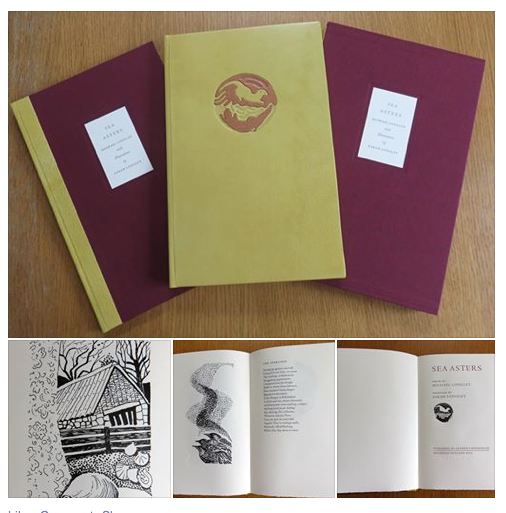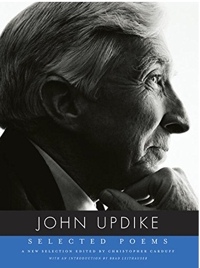 We received the uncorrected proof for John Updike: Selected Poems, edited by Christopher Carduff and with an introduction by Brad Leithauser, which will be published on October 16, 2015 by Alfred A. Knopf (320 pp., $30/SRP). Because it’s an uncorrected proof we can’t quote from it without comparing it to the finished book, but we can give you an idea of what’s here.
We received the uncorrected proof for John Updike: Selected Poems, edited by Christopher Carduff and with an introduction by Brad Leithauser, which will be published on October 16, 2015 by Alfred A. Knopf (320 pp., $30/SRP). Because it’s an uncorrected proof we can’t quote from it without comparing it to the finished book, but we can give you an idea of what’s here.
As an editor’s note summarizes, the poems span the years 1953-2008, from the time Updike was 21 until he was 76. Carduff confirmed the completion date for each poem by looking at manuscripts in the John Updike Papers at Harvard’s Houghton Library, and the poems are arranged chronologically by those dates. As a further organizing principle—or rather, as a principle of exclusion—Carduff followed Updike’s lead in assembling his Collected Poems 1953-1993 and excluded light verse, children’s verse, and poems written for private occasions.
Almost all the poems in Selected Poems are from Collected Poems 1953-1993, Americana, and Endpoint, Carduff told us in an email. “Memories of Anguilla, 1960” is from Picked-Up Pieces; “Not Cancelled Yet” is from Higher Gossip; “Commuter Hop,” “Above What God Sees,” and “Big Bard” were published in magazines but are previously uncollected; and “Coming into New York” is an undergraduate poem and appears here for the first time (but is scheduled to appear in a large-circulation national magazine before publication). Selected Poems will be published simultaneously in hardcover and eBook formats. A Knopf paperback edition will follow, “probably in April 2017,” Carduff said.
According to Carduff, the volume is part of an ongoing series edited by Deborah Garrison for Knopf. “All share the same trim size, same Baskerville typography, same interior design and series look; most have notes; each has a critical introduction, a short chronology of the author, an index of titles. Some of the other volumes are Wallace Stevens, Frank O’Hara, Vladimir Nabokov, also Amy Clampitt, Anthony Hecht, James Merrill. . . .”
Leithauser’s 11-page introduction is pithy and insightful, with the award-winning poet calling Updike’s verse “naked poetry,” and not just because of the often frank topics and titles. He notes that the poems come to the readers “naked” without any narrative mediation, that they come from Updike himself. Leithauser includes a liberal amount of lines from the poems and extends his commentary to those specific excerpts.
Included are two appendices—detailed notes on the poems, and a short chronology of Updike’s life—and a title index.
What poems make the cut? You can probably guess. “Midpoint” and “Endpoint” are here, along with “Shillington” (which first appeared in the borough publication Fifty Years of Progress, 1908-1958), “My Mother at Her Desk,” “Outliving One’s Father,” “Elegy for a Real Golfer,” “Jesus and Elvis,” “Upon Becoming a Senior Citizen,” “In the Cemetery High Above Shillington,” “Elderly Sex,” “To a Dead Flame,” “The Beautiful Bowel Movement,” “Squirrels Mating,” “Two Hoppers,” “Poisoned in Nassau,” “Golfers,” “Above What God Sees,” “Tossing and Turning,” “Seven Stanzas atEaster,” “Tao in the Yankee Stadium Bleachers,” “Ex-Basketball Player,” and “Why the Telephone Wires Dip and the Poles Are Cracked and Crooked.” There are 132 in all, and pared down from the Collected Poems they reinforce just how good of a poet Updike really was.
Here’s a link to the Amazon.com pre-order page.
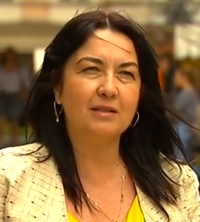 John Updike Society board member Biljana Dojčinović was featured on RTS (Radio Television of Serbia) in a program of culture titled “Metropolis,” about Sylvia Plath.
John Updike Society board member Biljana Dojčinović was featured on RTS (Radio Television of Serbia) in a program of culture titled “Metropolis,” about Sylvia Plath.


